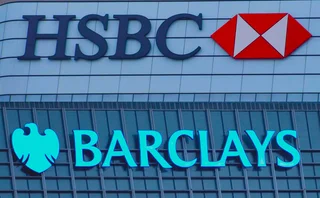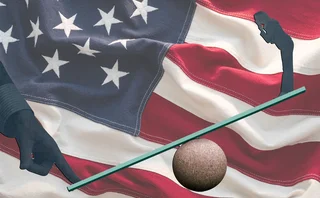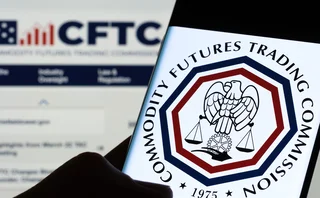
Madoff feeders' due diligence attacked as lawsuits mount
Investors that lost billions of dollars to Bernard Madoff have filed several class-action lawsuits claiming massive due diligence failures by fund managers who placed money into the alleged $50 billion Ponzi scheme, even though scant detail has emerged on how the fraud worked.
On February 20, a group of investors filed a class-action suit against New York-based Tremont Group Holdings, a feeder fund that had $3.3 billion of client assets invested with Bernard Madoff Investment Securities (BMIS) at the time the fraud was brought to light on December 11, 2008.
The suit alleges that, although Tremont "promised investors it would provide careful due diligence and portfolio management, it did nothing of the kind. Contrary to its representations to investors, Tremont conducted no due diligence or due diligence that was negligent and/or reckless".
Tremont ranks as the second-largest Madoff victim, after New York hedge fund Fairfield Greenwich, which has confirmed an exposure of $6.9 billion to BMIS and was one of the first funds to be served papers by investors over lax due diligence.
Similar writs have been filed at the Southern District Court of Florida, where investors of a sub-fund of Geneva-based Optimal Investment Services are suing the investment adviser, a subsidiary of Spanish giant Banco Santander, over $3.1 billion in client funds swallowed up by Madoff.
Optimal had said its US broker-dealer - the identity of which was kept from investors but was later revealed to be Madoff - was only "responsible for the execution of the fund's trading strategy". Optimal took all investment decisions itself, it said.
The suit alleges Optimal published materials that "contained false and misleading information about the manner in which [clients'] assets were being invested". Despite being paid almost €44 million annually in management fees and stressing its "intensive due diligence" processes, Optimal "failed to conduct reasonable and adequate due diligence" on Madoff, the suit claims.
Santander declined to comment on the details of Optimal's due diligence processes, but one of the attorneys representing plaintiffs in the Florida class action stated the Spanish banking group looks to be at fault, regardless of whether it investigated Madoff or not.
"Santander is going to have a very hard time defending its due diligence. If it did really conduct thorough due diligence, went into Madoff's offices and saw how much or how little trading he was doing, then that calls into question how much it knew. To the extent it didn't show any due diligence, then that in itself is huge," he commented.
The US Congress heard damning testimony from fraud examiner Harry Markopolos on February 3, when he recalled his repeated efforts to alert the Securities and Exchange Commission (SEC) to the Ponzi scheme and claimed he completed the calculations in just four hours that proved Madoff's purported 30-year split-strike conversion to be a mathematical impossibility.
Markopolos roundly attacked the "financial illiteracy" rife within the SEC and lambasted it for failing to recruit examiners with expertise in derivatives and quantitative finance, estimating that only one person out of the regulator's 3,500 staff understood how a split-strike conversion works.
After the conclusion of Markopolos' testimony, representatives from the SEC, brought before the committee to testify how the Ponzi scheme had escaped their detection, enraged Congressmen by refusing to answer questions pertaining to the BMIS investigation, citing concerns such comments would render certain information inadmissible at any future criminal proceedings.
On February 9, Madoff reached a settlement with the SEC over the civil suit the regulator filed against him, establishing the facts of the complaint had been agreed upon by both parties and were no longer contestable by Madoff. Under the agreement, Madoff is permanently restrained from violating provisions of federal securities laws, his assets remain frozen and judgement on fines or other civil penalty is postponed to a later date.
The agreement came four days after BMIS trustee Irving Picard announced he had recovered a total of $946.4 million in cash and securities from BMIS. Later in the month, Picard revealed he had found no evidence of any securities traded on behalf of investors for "perhaps as much as 13 years", and characterised the BMIS as simply a "cash in and cash out" operation.
See also: SEC incompetence and secrecy over Madoff enrages Congress
Quantitative tests pointed to Madoff fraud, says Riskdata
Congress questions SEC competence as Madoff investigation begins
Madoff fraud puts focus on fund due diligence
Only users who have a paid subscription or are part of a corporate subscription are able to print or copy content.
To access these options, along with all other subscription benefits, please contact info@risk.net or view our subscription options here: http://subscriptions.risk.net/subscribe
You are currently unable to print this content. Please contact info@risk.net to find out more.
You are currently unable to copy this content. Please contact info@risk.net to find out more.
Copyright Infopro Digital Limited. All rights reserved.
As outlined in our terms and conditions, https://www.infopro-digital.com/terms-and-conditions/subscriptions/ (point 2.4), printing is limited to a single copy.
If you would like to purchase additional rights please email info@risk.net
Copyright Infopro Digital Limited. All rights reserved.
You may share this content using our article tools. As outlined in our terms and conditions, https://www.infopro-digital.com/terms-and-conditions/subscriptions/ (clause 2.4), an Authorised User may only make one copy of the materials for their own personal use. You must also comply with the restrictions in clause 2.5.
If you would like to purchase additional rights please email info@risk.net
More on Regulation
Barr defends easing of Basel III endgame proposal
Fed’s top regulator says he will stay and finish the package, is comfortable with capital impact
Bank of England to review UK clearing rules
Broader collateral set and greater margin transparency could be adopted from Emir 3.0, but not active accounts requirement
The wisdom of Oz? Why Australia is phasing out AT1s
Analysts think Australian banks will transition smoothly, but other countries unlikely to follow
EU trade repository matching disrupted by Emir overhaul
Some say problem affecting derivatives reporting has been resolved, but others find it persists
Barclays and HSBC opt for FRTB internal models
However, UK pair unlikely to chase approval in time for Basel III go-live in January 2026
Foreign banks want level playing field in US Basel III redraft
IHCs say capital charges for op risk and inter-affiliate trades out of line with US-based peers
CFTC’s Mersinger wants new rules for vertical silos
Republican commissioner shares Democrats’ concerns about combined FCMs and clearing houses
Adapting FRTB strategies across Apac markets
As Apac banks face FRTB deadlines, MSCI explores the insights from early adopters that can help them align with requirements







